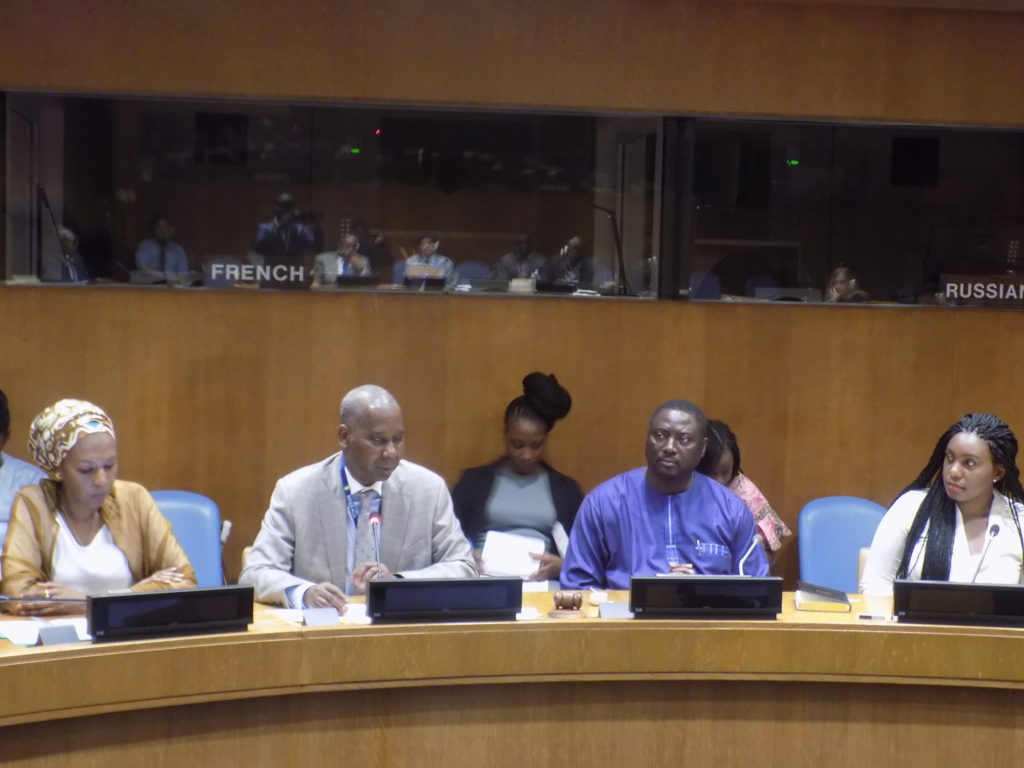A UN Panel discussion on Nigeria has stressed the need for quality education for children with special needs from low income families in the country.
The panel with the theme: `Special Education: A model for Sustainable and Inclusive Education in Developing Countries’, underscored the central place of children with special needs.
Mrs Olayide Olumide-Odediran, a specialist in social impact and education, said Nigerian Government’s desire to provide quality education for all its citizens was being hampered by several factors.
“Digest of Education Statistics says Nigeria currently has 10 per cent of the classrooms required for Early Childhood Education, and only 40 per cent of the classroom space is required for primary education.
“The infrastructure we have has also been threatened. By 2016, reports showed that approximately 910 schools had been destroyed as a result of the Boko Haram insurgency,’’ she said.
According to her, public funding for the provision of quality education to all is largely inadequate, and urged governments look to the private sector for additional funding required to provide inclusive education.
Olumide-Odediran called for measures to provide support for children with varying physical and learning needs within mainstream education.
She also suggested a legal framework for driving public-private partnerships for social development, including education, and to drive accountability for education outcomes, among others.
Ms Olatokunbo Bakare, a Behavioural Analyst, noted the current service gap predominantly in the public schooling system and dearth of research as it pertained to students with developmental delays at the basic education level.
Bakare said that Nigeria was involved in special needs education but that present practices were not yet consistent with existing global best practices.
According to her, however, there is information for parents in some parts of the country about the nearest inclusive schools that would cater to their children’s needs.
“Once placed in a school, the family receives support from the government in the form of basic school materials, a free meal a day and other basic needs.
“Children are taught in medium size groups, they are typically grouped together in one classroom, taught by one teacher.
“The teacher may or may not have specialisation in the area of your child’s particular needs, however a somewhat differentiated curriculum of teaching is delivered,’’ she said.
In her remarks, Ms Fatma Kyari-Mohammed, African Union Ambassador to the UN, reaffirmed AU’s commitment to achieving equality and empowerment of all persons with disabilities.
According to the AU envoy, the universal Declaration of Human Rights reaffirms that all human beings are born free and equal in dignity and rights, but regretted that children with disabilities carried a burden of persistent stigmatisation from schools and communities.
“There is a lack of understanding that these children have the same rights to education and the same ability to learn when provided with relevant support,’’ she said.
She said in January 2018, AU Heads of States adopted the ‘African Union Protocol to the African Charter on Human and People’s Rights on the Rights of Persons with Disabilities in Africa’.
According to her, the AU Protocol addresses some of the urgent issues that have the most disproportionate impact on people with disabilities, such as poverty, systemic discrimination and harmful practices.
On her part, Ms Olajobi Makinwa, the Chief for Intergovernmental Relations and Africa at United Nations Global Compact, highlighted efforts toward engaging the private sector in inclusive education and action to promote Sustainable Development.
Speakers also called for the establishment of more colleges of education to train teachers in special education to meet the needs of inclusive education in Nigeria. (NAN)

